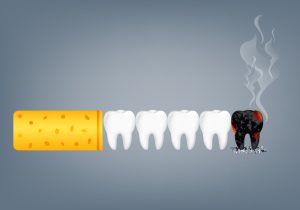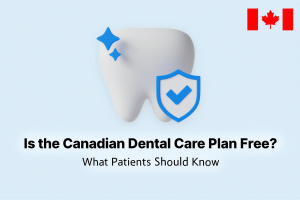Coffee and tea stains can build up and turn your teeth a dull yellow or brown colour. These drinks contain dark pigments and acids that adhere to your tooth enamel over time.
If not treated, these stains can become permanent. A dentist will help you remove these decays and help you prevent them from forming again in the future.
What Causes Coffee and Tea Stains on Teeth?
The problem with coffee and tea stains lies in the tannins present in both beverages, which can stick to the tooth enamel.
When you drink too much coffee and tea, tannins can cause discoloration that appears yellow or brown. Coffee, tea, and other dark beverages have acid in them, which can wear down enamel and allow stains to appear on tooth surfaces.
Signs of coffee and tea stains on teeth:
- Yellow, brown, or grey colourings on the front teeth.
- Stains near the gum line or in between the teeth.
- Your smile has lost its brightness and feels dull.
The more often you drink dark beverages, the deeper the stains become on your teeth. Tooth stains from drinks like this are classified as extrinsic stains, which deposit stain compounds on the outer surface of the teeth.
If you let them go too long, the stains can move from the outer surface of the tooth into the enamel, making them harder to remove by brushing or cleaning.
How a Calgary Dentist Treats Stained Teeth
A Calgary dentist uses professional tools and techniques to remove stains more effectively than home remedies. In-office cleanings can reach deep areas that brushing and flossing miss.
Dental cleaning for stain removal may include:
- Ultrasonic scaling to remove plaque and surface stains
- Polishing to smooth the enamel
- Fluoride application to protect teeth after cleaning
This type of treatment helps restore your natural tooth colour and prevents further staining. Dentists may also apply protective sealants or recommend enamel-strengthening products if your teeth are more prone to staining.
For patients who drink coffee or tea daily, regular dental cleanings every 6 months are highly recommended. This schedule allows your dentist to monitor new stains early and prevent buildup before it becomes difficult to treat.
How to Remove Stains from Teeth Naturally
Some people try natural methods at home to lighten stains. While a few options may help, they must be used with caution. Certain ingredients can be too harsh and damage the enamel.
Safe methods for how to remove stains from teeth naturally:
- Brush with baking soda 1–2 times a week
- Eat crunchy fruits and vegetables like apples and celery
- Rinse your mouth with water after drinking tea or coffee
- Use a straw to reduce contact with teeth
Other tips include oil pulling with coconut oil and chewing sugar-free gum, which increases saliva and helps cleanse the teeth. However, these methods work best as preventive measures rather than treatment for heavy staining.
Avoid using lemon juice, vinegar, or activated charcoal often, as they can erode enamel and make teeth more sensitive.
What Solutions Does a Dentist Offer for Stained Teeth
If natural methods don’t work, professional whitening is the next step. Dentists offer several treatments depending on the level of staining and tooth sensitivity.
Common dental solutions for stained teeth include:
- In-office whitening: Brightens teeth in one visit using light-activated gel
- Custom take-home trays: Gradually whitens teeth over 1–2 weeks
- Microabrasion or bonding: Used for tough stains that whitening won’t fix
In some cases, internal stains caused by trauma or medication may not respond to standard whitening. Your dentist may suggest veneers or composite bonding as a cosmetic solution to hide discoloration and reshape the tooth.
Dentists will examine the stains and recommend the most effective option for your case. They will also consider your tooth structure, gum health, and lifestyle habits before beginning treatment.
Teeth Whitening for Beverage Stains: What Are the Options?
Most people would choose teeth whitening for beverage stains to improve their smile. Whitening can remove surface-level and deeper stains caused by drinking coffee or tea daily.
| Whitening Option | Time Frame | Results | Best For |
| In-office whitening | 1 appointment | Immediate | Deep stains from drinks |
| Take-home trays | 1–2 weeks | Gradual | Mild to moderate stains |
| Whitening toothpaste | Daily use | Minimal | Surface-level discoloration |
Professional whitening works faster and lasts longer than store-bought products. Dentists also monitor the process to prevent side effects like gum irritation.
Some whitening systems include desensitizing agents to reduce discomfort. Your dentist may also recommend avoiding certain foods and drinks during treatment to maintain results and protect your enamel.
How to Prevent Stains After Treatment
After whitening, it’s important to maintain the results and reduce new stains. Simple daily habits can make a big difference in keeping your teeth bright.
Prevention tips:
- Brush your teeth twice a day
- Rinse your mouth after drinking coffee or tea
- Use a straw for dark drinks
- Avoid smoking and heavily pigmented foods
- Visit your dentist every 6 months
Drinking water regularly also helps flush away food particles and acids. Chewing sugar-free gum can increase saliva flow, which helps neutralize acids and protect enamel.
Your dentist may suggest a whitening touch-up every 6–12 months, especially if you continue to consume coffee, tea, or other dark beverages.
What Lifestyle Changes Can Protect Your Smile?
If you rely on coffee or tea every day, cutting back can help reduce future stains. Switching to lighter-colored teas like green or white tea may also help. These have fewer staining compounds than black tea.
Other changes to consider:
- Brush 30 minutes after drinking coffee (not immediately, to avoid brushing softened enamel)
- Choose dairy-based drinks, which may reduce stain risk
- Add more water and fibrous foods to your diet
Even small adjustments in your routine can help reduce the impact of dark drinks on your teeth.
Final Thoughts
Coffee and tea are common causes of tooth discoloration. With help from a dentist, these stains can be removed safely and effectively. If you want to improve your smile, start by talking to a dental professional about your options.
Stained teeth don’t have to be permanent. Inglewood Family Dental offers cleanings and whitening treatments designed to remove coffee and tea stains safely. Schedule a visit today to learn how we can help restore your smile.






